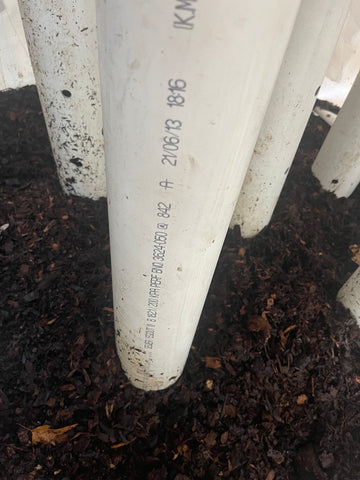What's a Johnson-Su Bioreactor?
Developed by Dr. David Johnson and his wife, HuiChun Su, the Johnson-Su bioreactor is a static aerobic (oxygen-requiring) composting method used to encourage fungal dominance in compost.
The process involves heating compost to 145-165°F (63-74°C) over a number of days, adding worms, and exposing the compost to air for nine months to one year. This allows the compost to be inoculated with air-borne fungal spores.
The end product is a fungally-dominated clay-like product that can be added to houseplants, lawns, and gardens.
Benefits of the Johnson-Su Bioreactor
The benefits of using a Johnson-Su bioreactor include:
How it Works:
A Johnson-Su bioreactor can consist of a shipping pallet, perforated plastic pipes, metal wire, and landscape fabric. The pallet acts as the base with the metal wire making a cage-like frame. The landscape fabric lines the frame to encase the bioreactor while allowing air flow. The perforated pipes are attached to holes in the pallet which allow for drainage and keep air flow inside the compost middle to maintain an aerobic environment.
The bioreactor is then filled with wet feed materials including food waste, yard waste, wood chips, and manure. This material is broken down by existing microbes and allowed to heat up to 63-74°C over 4-5 days and is then allowed to cool down. Once the temperature drops below 80°F (27°C), worms can then be added to the bioreactor and left to sit for nine months to one year. The airflow allows fungal spores to inoculate the pile as well.
The end result is a microbially diverse clay-like compost that can be added to gardens, used to coat seeds, or diluted in water to make a spray.
Want to Learn More?
Come for a tour at Solar Village Farm to see my Johnson Su composters for yourself! Tickets are on sale now at soilbooster.ca. Hope to see you there!

